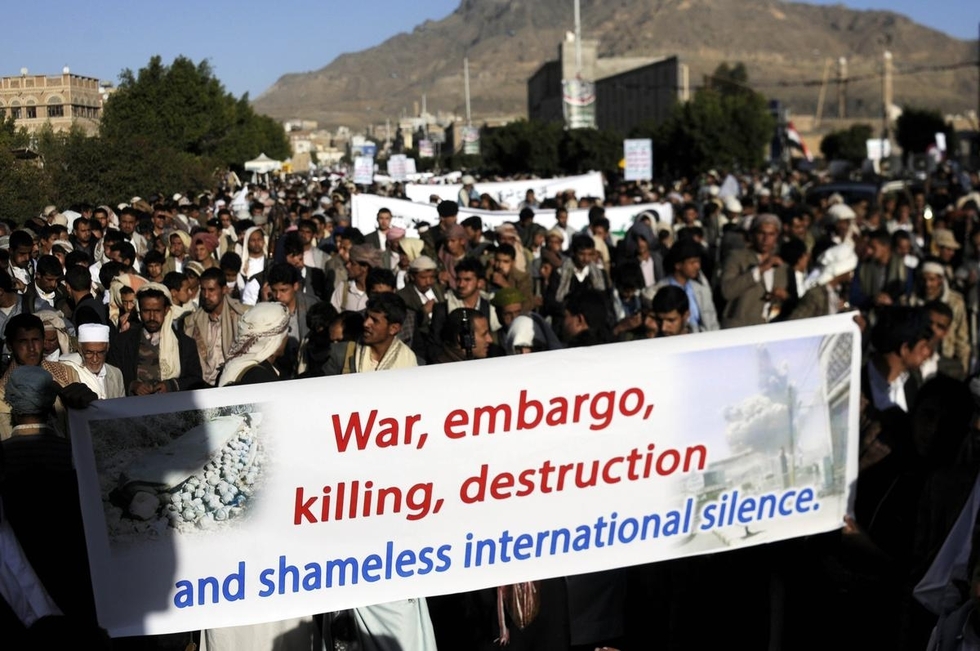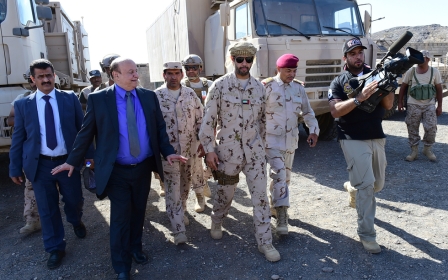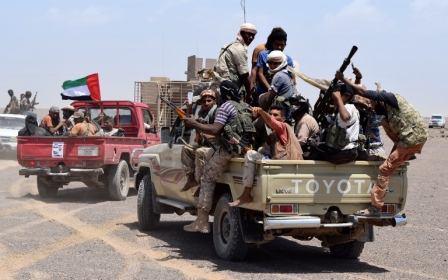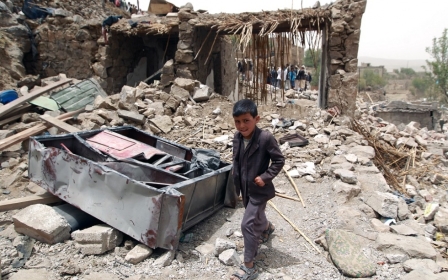Yemen war: The conflict everyone wants to forget

Things are bad in Yemen; even worse than bad. Nine months since the Yemen war began and the impact of the violence does not only continue to rip the country apart but it has also sent the majority of the population into destitution.
While the return of President Hadi and his prime minister to Aden gives the illusion that there will be an end to the current unresolved multi-front fighting in other parts of the country, the suffering of Yemenis continues to be incomprehensible.
The human cost of the war so far is immense, as the Saudi-led coalition air strikes and the Houthi-Saleh alliance’s aggression have in inflicted horrendous atrocities across the country. The ongoing conflict has resulted in over 32,000 casualties, with 5,700 people killed, including 830 women and children, alongside a sharp rise in human rights violations, according to the latest UN report.
Even more tragic is the civilian deaths, or what the Saudi-led coalition likes to call collateral damage, during wedding parties. More than 160 people including women and children were killed in air strikes that hit at least two separate wedding parties. Despite the fact that nowhere has been safe in Yemen, over 2.3 million have tried to escape the escalating violence and have become internally displaced since late March of this year.
In a country like Yemen that imports 90 percent of its food, fuel, medicine and other vital goods from foreign suppliers, food has been used as a war weapon. It’s not only that the coalition’s naval blockade of Yemen’s main ports has been leaving 80 percent of Yemen’s population facing a humanitarian disaster, but the Saudis have also made sure that whatever relief operation are carried in Yemen need to be barred from delivery to Houthi-controlled areas, according to a UN reporter. With such tactics, the ongoing war is devastating Yemen; 82 percent of the population, that’s 21.2 million people, are in need of some kind of humanitarian assistance.
Amidst the worsening humanitarian catastrophe earlier this month, two rare cyclones made a landfall on Yemen's southern coast killing 26 people and affecting thousands of families. In light of the severity of needs, a black market in all rare commodities is flourishing; only those who can afford the skyrocketing prices can shop there. Using donkey carts for transportation and solar energy to compensate electricity scarcity have become the new norm in Yemen, as the people are trapped in an escalating conflict and navigating alternative methods of survival.
With that said, one would expect the world and the international community to rally to help Yemenis in their ordeal, and yet Yemenis’ cries fall on deaf ears. I realised this when a Yemeni friend called me once she arrived to Jordan after she escaped the violence in Yemen. She shared her shock with me in realising that nobody cares about the situation in Yemen. “When I was in Yemen and isolated from the rest of the world because of the fighting, I thought that the world was doing something to rescue us, but when I managed to get out of the country and see outsiders’ reactions to the Yemen war, I saw how nobody cares about us,” she said.
There are two main reasons behind the general indifference towards the war in Yemen. One is how the media coverage is highly dominated by the two main warring parties’ mouthpieces - whether the Saudi-affiliated or the Iranian-affiliated media, giving a false impression that the Yemen war is primarily sectarian.
The relatively independent local press inside the country is under fire and mostly silenced. Thus, the dominant media narrative about the Yemen war has a sectarian language that does not reflect the major political dispute. This influences the international public understanding about the Yemen war and greatly dehumanises Yemenis.
The other reason is the Yemen war has become a lucrative business for great powers and ordinary countries alike. Saudi Arabia is the UK’s largest foreign customer of weapons and the US State Department recently announced its approval of a new $1.29 billion arms deal for Saudi Arabia.
Soldiers from several countries such as Colombia and Sudan have found opportunity for recruitment in Yemen war. Many seem to benefit from the war in Yemen, and it’s of their great interest that this war continues. Of course, that is at the expense of Yemeni lives.
Yemenis’ ordeal is summed up in Thucydides’ saying: “The strong do what they can and the weak suffer what they must.” With global apathy toward the war in Yemen, Yemenis know that they are alone in facing a double-faced evil. One of the world’s poorest nations stands helplessly against the Saudis’ power-machine and the Saleh-Houthi alliance’s aggression.
The world’s apathy over the atrocities in Yemen makes its people feel abandoned and, more painfully, makes them realise how Yemenis’ blood counts for nothing. It’s difficult to comprehend how the world can fail to acknowledge that this situation is beyond a tragedy; it is a shame on humanity.
-Afrah Nasser is a freelance writer and blogger since 2010 focusing on Human Rights violations, women's rights and politics of Yemen. She's a grad student in communication at University of Gothenburg and the co-founder of the Yemeni Salon in Stockholm NGO.
The views expressed in this article belong to the author and do not necessarily reflect the editorial policy of Middle East Eye.
Photo: Supporters of the Houthis gather at Babul Yemen street to protest the US government's sale of $1.29 billion in smart bombs to Saudi Arabia, in Sanaa, Yemen on 20 November 2015 (AA).
New MEE newsletter: Jerusalem Dispatch
Sign up to get the latest insights and analysis on Israel-Palestine, alongside Turkey Unpacked and other MEE newsletters
Middle East Eye delivers independent and unrivalled coverage and analysis of the Middle East, North Africa and beyond. To learn more about republishing this content and the associated fees, please fill out this form. More about MEE can be found here.





